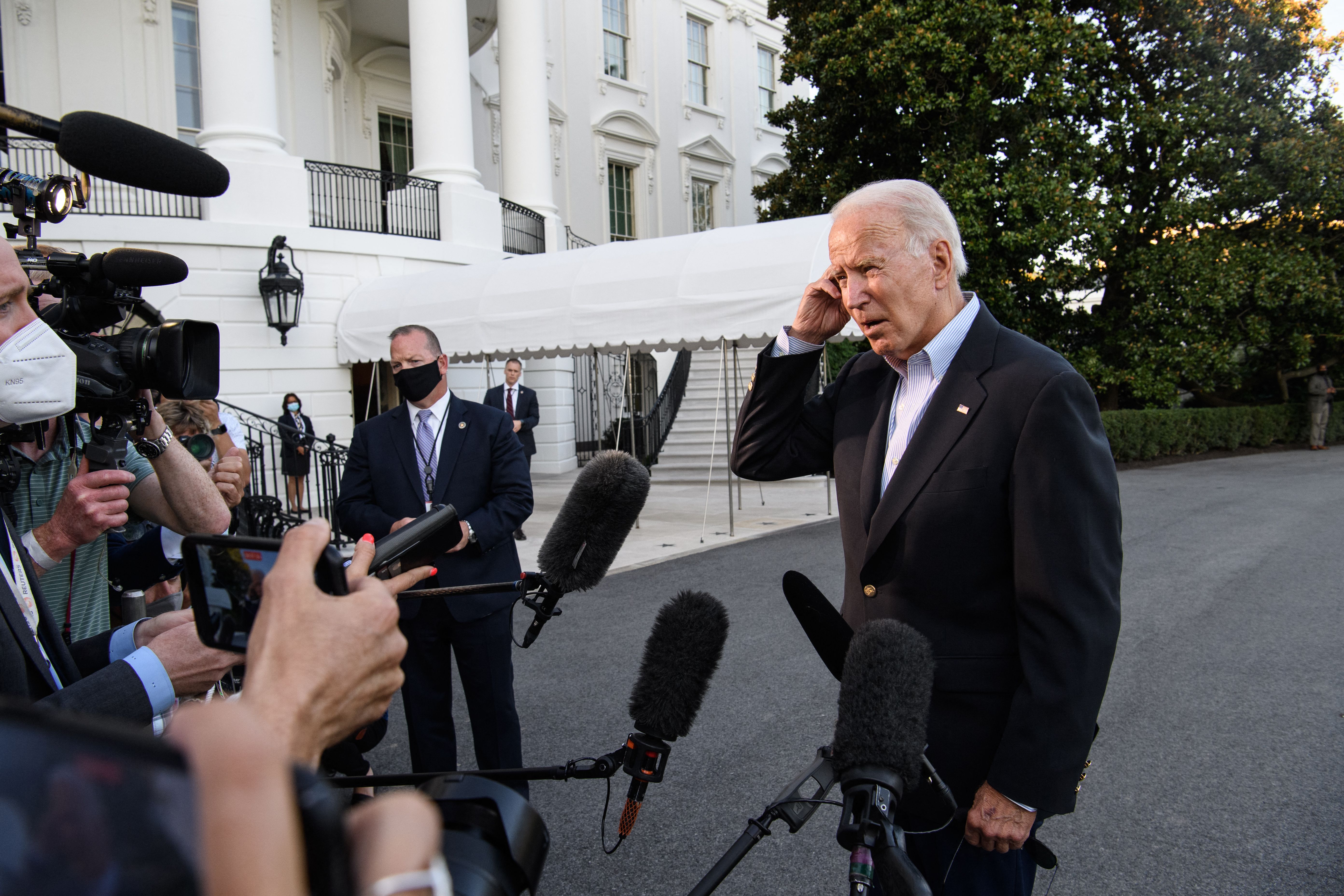At this point the American people would settle for competency.
Joe Biden was supposed to deliver a return to presidential normalcy, and that may be all he thinks is necessary to satisfy the 81 million voters who elected him. Sooner or later, however, the country will start pining for a return to competency as well, and it’s far from clear that this administration is up to the task.
Mr. Biden’s long, hot mess of a summer culminated with an ill-advised and horrifically bungled withdrawal of U.S. forces from Afghanistan. Images of the Taliban commandeering U.S. military aircraft and armored vehicles won’t soon be forgotten by Americans—or our enemies. But that’s not the only reason the president’s Real Clear Politics job-approval rating has dropped to 45% from 54% since late-May.
Mr. Biden told us Covid would be more or less under control in time for Fourth of July celebrations. Yet the Delta variant continues to hamper job growth, throttle travel plans and wreak havoc on the new school year while the White House argues with government regulators over when to roll out booster shots. Yes, hourly earnings have crept up as employers offer higher wages to lure people back to work, but what good is that bigger paycheck if it’s being eaten up by higher prices? Adjusted for inflation, wages have been falling this year. Job growth in August was less than a third of what economists were expecting and the worst monthly increase since January.
Remember when the White House assured us in the spring that the migrant surge on the southern border was “seasonal” and nothing to worry about? Oops. “The Border Patrol made about 200,000 arrests at the southern border in July, marking the busiest month at the border in 21 years and a 12% increase over the previous month,” the Journal reported in August, citing U.S. Customs and Border Protection data. Detention centers are so overwhelmed that illegal immigrants are being released into the population without being screened for Covid.
After Afghanistan, immigration is Mr. Biden’s biggest unforced error and more evidence that competency is not his forte. The situation on the border has worsened to the point where White House officials were relieved when the Supreme Court ruled against the administration last month and effectively revived a Trump-era policy that required asylum seekers to wait in Mexico while their claims are being adjudicated. Among some administration officials, “the Supreme Court’s order was quietly greeted with something other than dismay,” the New York Times reported this week. “It brought some measure of relief.” The reprieve, it is hoped, will give the administration “an opportunity to take a step back, come up with a more humane version of Mr. Trump’s policy,” and “reduce the enormous number of people arriving at the border.”
If that’s the plan, someone ought to tell Congress. Democrats will spend the next few weeks trying to ram through on a party line vote the largest expansion of government since Lyndon Johnson’s Great Society. And they’ve tossed in an amnesty proposal for good measure that will do nothing to curb illegal immigration. Mr. Biden and his fellow Democrats are betting that their $3.5 trillion “human infrastructure” package will compensate for the missteps voters have witnessed thus far. But the risks are considerable, and not just because it puts a progressive wish list—large tax increases, green subsidies, child tax credits, free college—ahead of the more-immediate needs of everyday people. Mr. Biden’s ambitions would seem to exceed his mandate. His party holds a slim majority in the House, where it lost seats in November 2020, and the Senate is evenly split. Bipartisan moderation would seem to be in order, not Great Society 2.0.
Another risk is that the Biden administration’s cradle-to-grave entitlement bonanza could backfire insofar as it increases government dependency, shrinks the size of the labor force and hampers economic growth. The federal government’s enhanced unemployment benefits finally ended this week, a tacit admission by the White House that paying people not to work might be one reason why there are 8.4 million people unemployed in a labor market with 10 million job openings. Labor-force participation remains below its pre-pandemic level and some groups are struggling more than others.
In July the black unemployment rate fell by a full percentage point to 8.2%, which is further than it fell for whites, Hispanics or Asian-Americans. However, the decline was not due to more blacks finding work. Instead, it resulted from some 250,000 blacks leaving the labor force and thus reversing a previous trend. According to the Bureau of Labor Statistics, labor participation rates in July ticked upward for the other groups but declined for blacks. Mr. Biden likes to talk about “equity,” but that’s not what his policies are producing. Growing the welfare state is unlikely to help.
______________________
Jason L. Riley is a senior fellow at the Manhattan Institute, a columnist at The Wall Street Journal, and a Fox News commentator. Follow him on Twitter here.
This piece originally appeared in The Wall Street Journal
